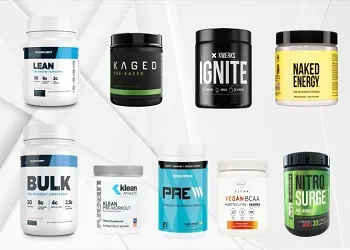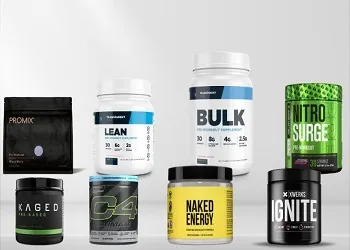Table of Contents
Understanding Creatine and Dehydration
Creatine is a naturally occurring compound found in small amounts in certain foods and produced by the body.
It plays a crucial role in energy production during short bursts of intense physical activity. However, rumors and misconceptions about creatine causing dehydration have circulated in fitness circles, leading to confusion among users.
To address the question, “Does creatine dehydrate you?” it’s essential to understand how creatine works in the body. Creatine draws water into muscle cells, aiding in the production of adenosine triphosphate (ATP), the primary energy currency of cells.
This increased water retention within the muscle cells may lead some individuals to believe that creatine causes dehydration. However, it’s crucial to distinguish between intracellular water (inside the cells) and extracellular water (outside the cells), which is vital for maintaining hydration. Intracellular water is water located inside the cells of the body. Extracellular water is water found outside the cells.
By recognizing the roles that intracellular and extracellular water play in hydration, individuals can develop strategies to ensure that both types of water are adequately replenished. This may involve consuming fluids and electrolytes that promote hydration on a cellular level, as well as considering factors such as activity level, environmental conditions, and individual hydration needs.
By making informed decisions about hydration, individuals can support their overall health and performance, as proper hydration is essential for optimal bodily function, cognitive performance, and physical endurance.

Creatine Supplementation Benefits
Creatine supplements can benefit people who engage in high-intensity activities like sprinting, weightlifting, or team sports. One of the main benefits is that creatine helps muscles produce energy more efficiently during short bursts of intense exercise. This can improve performance, allowing athletes to train harder and recover faster between workouts.
Additionally, creatine supplementation may increase muscle strength and power over time, which can be especially helpful for athletes looking to gain muscle mass or enhance their athletic performance.
Some studies suggest that creatine supplements support brain health and cognitive function, although more research is needed. Overall, creatine supplements can be useful for athletes and fitness enthusiasts looking to maximize their performance and achieve their training goals.
Creatine Supplements and Urination

The increased frequency of urination associated with creatine supplementation is often a result of the body’s adjustment to the altered fluid balance. As creatine draws water into the muscle cells, it may increase fluid intake. This, in turn, can lead to more frequent urination as the body eliminates excess fluids.
While increased urination may initially be surprising or inconvenient, it is generally not a cause for concern. If it persists or becomes bothersome, adjusting your fluid intake and creatine dosage may help alleviate this side effect.
If you are concerned about the frequency of urination, consulting with a healthcare professional can provide personalized guidance based on your health status.
Does Creatine Change Urine Color?
Another concern associated with creatine supplementation is changes in urine color. Some users have reported that their urine turns a shade of yellow.
The discoloration of urine may be attributed to added vitamins, specifically B vitamins, commonly found in some creatine supplements. These vitamins are water-soluble and can cause a temporary change in urine color. While this occurrence may be alarming, it is generally harmless and not a cause for concern.
However, a change in your urine color may indicate dehydration.
Muscle Cramps and Creatine Supplements

Muscle cramps are a common concern for individuals who take creatine supplements, especially during the initial loading phase or when consuming high doses. While the exact cause of muscle cramps associated with creatine supplementation is not fully understood, it’s believed that changes in muscle hydration levels or electrolyte balance may play a role.
Additionally, intense exercise and high doses of creatine can increase the demand for electrolytes like sodium, potassium, and magnesium, essential for proper muscle function.
In some cases, electrolyte imbalances or inadequate hydration may exacerbate muscle cramping in individuals taking creatine supplements. It’s essential for individuals using creatine to stay well-hydrated and maintain a balanced diet to support overall muscle health and minimize the risk of muscle cramps. If muscle cramps persist or become severe, it’s advisable to consult with a healthcare professional to determine the underlying cause and appropriate management strategies.
Signs of Dehydration

It’s important to note that the severity of these symptoms can vary depending on the degree of dehydration, so it’s essential to address dehydration promptly to prevent further complications. If you suspect dehydration, it’s advisable to drink fluids and seek medical attention if symptoms persist or worsen.
Signs of Electrolyte Imbalance

Electrolytes are minerals in your body that have an electric charge. They are essential for various bodily functions, including maintaining fluid balance, regulating nerve and muscle function, and supporting cell function. An imbalance in electrolytes can lead to various symptoms. Here are some signs of an electrolyte imbalance:
- Muscle cramps or spasms: Low potassium, magnesium, or calcium can cause muscle cramps or spasms.
- Weakness or fatigue: Changes in sodium and potassium can lead to feelings of weakness or fatigue.
- Irregular heartbeat: Low potassium or magnesium levels can disrupt the heart’s normal rhythm, leading to palpitations or irregular heartbeat.
- Nausea or vomiting: Imbalances in sodium and potassium can cause gastrointestinal symptoms like nausea, vomiting, or diarrhea.
- Changes in blood pressure: Changes in sodium levels can affect blood pressure, leading to high blood pressure (hypertension) or low blood pressure (hypotension).
- Confusion or disorientation: Low sodium levels (hyponatremia) can affect brain function, leading to confusion, disorientation, or seizures.
- Tingling or numbness: Imbalances in calcium or magnesium can cause tingling sensations or numbness in the extremities.
- Excessive thirst or urination: High blood sugar (hyperglycemia) or low potassium levels (hypokalemia) can lead to increased thirst and urination.
- Changes in appetite: Low levels of magnesium or potassium can affect appetite, leading to changes in food intake.
- Bone disorders: Chronic imbalances in calcium levels (hypocalcemia) or low phosphate levels (hypophosphatemia) can affect bone health, leading to osteoporosis or osteomalacia.
If you experience any of these symptoms, especially severe or persistent, you must seek medical attention promptly. Electrolyte imbalances can be diagnosed through blood tests, and treatment typically involves addressing the underlying cause and restoring electrolyte balance through dietary changes, supplements, or intravenous fluids.
Creatine Supplement Safety
While creatine is generally safe within recommended dosage guidelines, excessive amounts can lead to potential side effects. It’s crucial to follow recommended dosages and consult a healthcare professional if you have concerns about your creatine intake.
Potential dangers associated with excessive creatine intake:
- Dehydration: High doses of creatine can lead to increased water retention in muscles, potentially causing dehydration if fluid intake is insufficient to compensate.
- Gastrointestinal Distress: Some individuals may experience digestive issues such as nausea, diarrhea, or stomach cramps when taking high doses of creatine.
- Kidney Strain: There is some concern that excessive creatine supplementation could strain the kidneys, particularly in individuals with pre-existing kidney conditions. However, research on this topic is still ongoing and inconclusive.
- Electrolyte Imbalance: Creatine supplementation may increase the demand for electrolytes like sodium, potassium, and magnesium, potentially leading to imbalances if not adequately replenished through diet or supplementation.
- Muscle Cramping: High doses of creatine or rapid loading phases may increase the risk of muscle cramps, especially if hydration and electrolyte balance are not maintained.
- Weight Gain: Creatine supplementation can lead to temporary weight gain due to increased muscle water retention, which may be undesirable for some individuals, particularly those trying to maintain a certain weight or body composition.
- Liver Damage: Although rare, there have been isolated reports of liver damage associated with high-dose creatine supplementation. However, more research is needed to determine the exact relationship between creatine intake and liver health.
- Interactions With Medications: Creatine supplements may interact with certain medications or supplements, particularly those that affect kidney function or electrolyte balance. It’s essential to consult with a healthcare professional before starting creatine supplementation, especially if you are taking other medications or have underlying health conditions.
While creatine supplementation can benefit some individuals, it’s essential to use it responsibly and in moderation to minimize the potential dangers and maximize safety. Consulting with a healthcare professional before starting creatine supplementation can help ensure that it is appropriate for your individual needs and circumstances.

Final Thoughts
Researchers have concluded that no evidence supports the theory that creatine causes dehydration. Creatine supplementation is a widely used strategy among athletes and fitness enthusiasts to enhance performance and muscle growth.
Creatine supplements can cause muscles to retain more water, which may lead to increased fluid loss through sweating during exercise if adequate hydration is not maintained.
Additionally, creatine’s potential to increase muscle mass and intensity of workouts can further elevate the risk of dehydration if fluid intake does not match increased demands.
Therefore, individuals using creatine supplements should prioritize staying well-hydrated by drinking plenty of fluids throughout the day, especially before, during, and after exercise. Monitoring hydration status and ensuring proper fluid intake can help mitigate the risk of dehydration associated with creatine supplementation and support overall health and performance goals.
FAQs
Do you need to drink more water when taking creatine?
Yes, increasing your water intake when supplementing with creatine is recommended. Creatine draws water into your muscles, potentially leading to dehydration if you don’t drink enough water. Adequate hydration is essential for the optimal absorption and effectiveness of creatine and overall health.
Can creatine cause dryness?
Creatine itself doesn’t directly cause dryness. However, because creatine may draw water into your muscles, inadequate hydration could lead to dryness or dehydration. To prevent this, drinking enough water while taking creatine supplements is important.
Does creatine make you very thirsty?
Creatine doesn’t make you excessively thirsty, but it can increase your body’s demand for water due to its ability to draw water into muscles. Some individuals may experience increased thirst due to this water retention effect. Ensuring adequate hydration can help manage any increased thirst associated with creatine supplementation.
Does creatine keep your muscles hydrated?
Yes, creatine can contribute to muscle hydration indirectly by increasing water retention within muscle cells. This can result in fuller-looking muscles and potentially improved performance during high-intensity exercise. However, while creatine aids in muscle hydration, it’s essential to maintain overall hydration by drinking enough water throughout the day.
Is Creatine Safe to Take Every Day?
For most individuals, creatine is safe to take daily within recommended dosage guidelines. However, it’s essential to consider factors such as overall health, existing medical conditions, and potential interactions with other supplements or medications. Consulting with a healthcare professional can provide personalized guidance on incorporating creatine into your daily routine.














